Importance of Corrosive Goods Storage Cabinets in ensuring Workplace Safety
Date Posted:20 September 2024
Corrosive goods storage cabinets are an essential tool for businesses that handle dangerous chemicals.
In industries where hazardous materials such as acids, bases, or other corrosive chemicals are used, proper storage is essential for workplace safety. Corrosive substances can cause severe damage to human health, the environment, and property if not handled and stored correctly. Corrosive goods storage cabinets provide a secure and compliant solution for safely storing these materials, ensuring that the risks associated with them are minimised.
Why Safe Storage of Corrosive Goods matter?
Corrosive substances are materials that can eat away or destroy other substances through chemical reactions. In industrial and laboratory settings, these chemicals are essential but also dangerous. Exposure to corrosives can lead to serious health issues, including chemical burns, respiratory problems, and even blindness. Additionally, if these substances spill or leak, they can damage equipment and property or cause environmental contamination.
To mitigate these risks, businesses handling corrosive goods must ensure they are stored in a manner that protects both people and the environment. Australian safety standards mandate the proper storage of hazardous materials, and failure to comply can result in significant legal and financial consequences.
What Are Corrosive Goods Storage Cabinets?
Corrosive goods storage cabinets are specially designed storage units made from materials that resist the damaging effects of corrosive chemicals. These cabinets are intended to contain spills, leaks, and vapours that could pose a threat to workers or the workplace. They are essential for maintaining a safe working environment and ensuring compliance with relevant safety regulations.
Key Features of Corrosive Goods Storage Cabinets
- Durable and Resistant Construction: The primary feature of corrosive goods storage cabinets is their construction from corrosion-resistant materials. Typically, these cabinets are made from polyethylene or steel coated with a corrosion-resistant material like epoxy. This ensures that even if chemicals spill or leak, the cabinet will not deteriorate or become compromised.
- Spill Containment: Most corrosive goods storage cabinets are designed with spill containment features such as sump trays or raised bases to capture leaks and spills. This helps prevent harmful chemicals from spreading and causing damage to the workplace or the environment.
- Ventilation Options: To prevent the buildup of toxic fumes inside the cabinet, many units are equipped with ventilation systems or can be connected to external ventilation. This feature reduces the risk of inhaling harmful vapours and maintains air quality within the storage area.
- Safety Labelling: Corrosive goods storage cabinets come with highly visible hazard labels that clearly indicate the type of materials stored within. This ensures that employees are aware of the potential dangers and can take necessary precautions when handling the materials.
- Lockable Doors: For added security, corrosive goods storage cabinets are often equipped with lockable doors. This ensures that only authorised personnel can access the dangerous chemicals, minimising the risk of misuse or accidental exposure.
- Adjustable Shelving: Many cabinets feature adjustable shelving, which allows businesses to customise the internal layout based on the size and quantity of the corrosive containers. This improves organisation and ensures that all items are stored securely.
Benefits of using Corrosive Goods Storage Cabinets
- Enhanced Workplace Safety: One of the most significant benefits of using corrosive goods storage cabinets is the improvement in workplace safety. By securely storing dangerous chemicals, businesses can reduce the risk of spills, leaks, or accidental exposure, protecting both employees and the environment from harm.
- Regulatory Compliance: Storing corrosive materials in compliant cabinets ensures that businesses meet Australian safety standards for hazardous goods storage. Failure to comply with these regulations can result in fines, penalties, or even legal action. Corrosive goods storage cabinets provide an easy way to ensure that businesses stay on the right side of the law.
- Prevention of Environmental Damage: Corrosive chemicals, if spilled, can cause significant damage to the environment, including soil contamination and water pollution. Proper storage in sealed, spill-proof cabinets prevents chemicals from escaping and causing harm to the surrounding area.
- Protection of Property and Equipment: Corrosive chemicals can damage the surfaces they come into contact with, leading to costly repairs or equipment replacement. By using corrosive goods storage cabinets, businesses can avoid damage to their infrastructure and protect their investment in equipment and facilities.
- Improved Organisation and Efficiency: Corrosive goods storage cabinets help businesses keep their hazardous materials organised in one secure location. This not only improves safety but also streamlines operations by making it easier for employees to find and access the materials they need.
Key Considerations
When selecting a corrosive goods storage cabinet, businesses should consider a few important factors to ensure they are choosing the right solution for their needs.
- Material Compatibility: Not all corrosive chemicals react the same way to different materials. Ensure the cabinet you choose is compatible with the specific chemicals you will be storing. For example, acids and bases may require different storage materials.
- Capacity: Consider the quantity of corrosive materials you need to store. Choose a cabinet with adequate capacity to safely store your chemicals without overcrowding, which can lead to spills or leaks.
- Location and Ventilation: Determine whether your storage location requires a cabinet with built-in ventilation or the ability to connect to external ventilation. Proper ventilation is essential for preventing the buildup of dangerous fumes.
- Compliance: Make sure the cabinet meets all relevant Australian standards for the storage of hazardous chemicals, including spill containment and fire safety requirements.


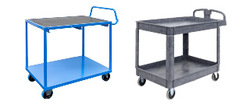
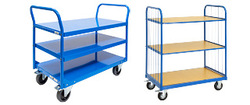
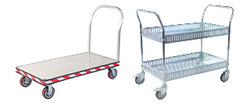
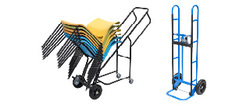
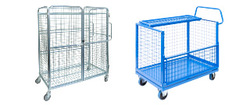
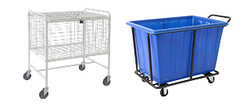
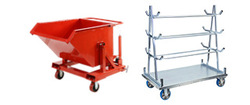
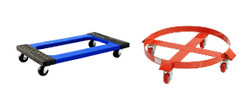
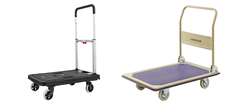
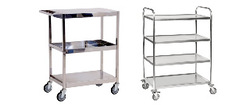
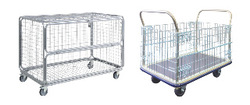
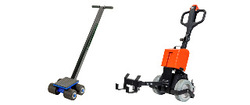
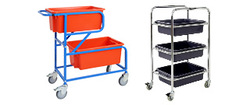
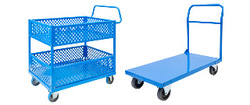
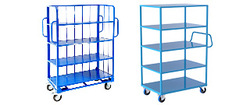
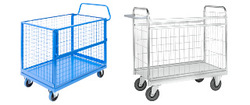
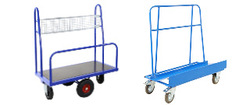
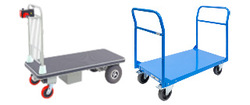
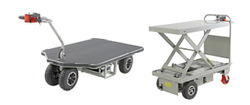
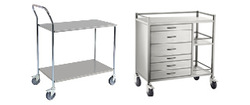
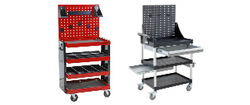
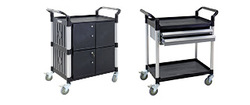
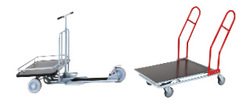
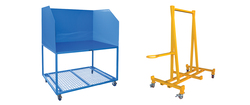



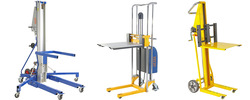



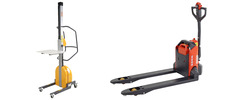
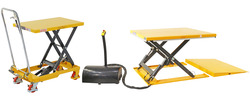
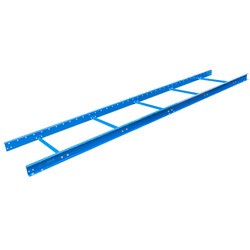
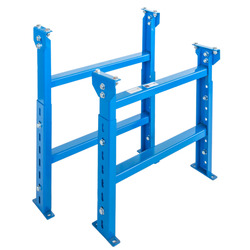
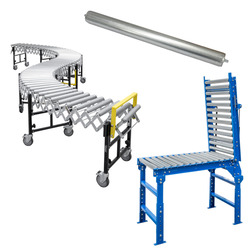
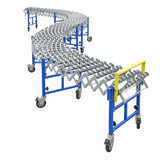



















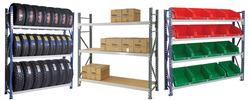
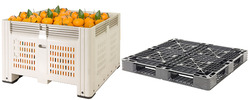
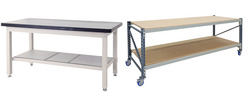
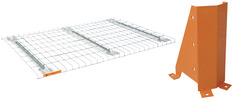
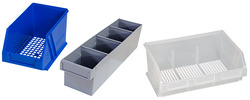

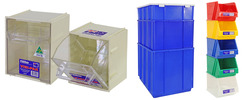

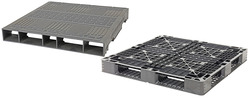
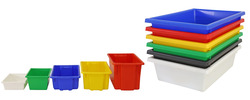
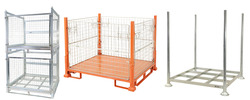
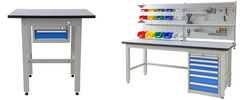
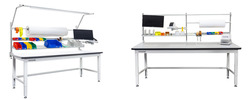

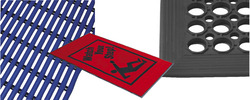
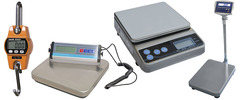



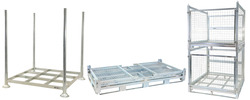
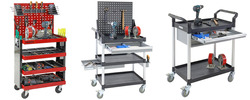
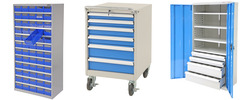
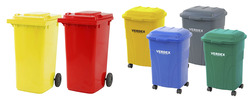
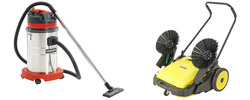





































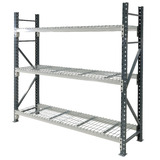












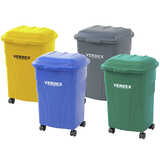


 Trolleys / Hand Trucks
Trolleys / Hand Trucks 2 Tier Trolleys
2 Tier Trolleys 3 Tier Trolleys
3 Tier Trolleys Aluminium Trolleys
Aluminium Trolleys Appliance & Hand Trucks
Appliance & Hand Trucks Cage Trolleys
Cage Trolleys Cleaning Carts & Trolleys
Cleaning Carts & Trolleys Construction Trolleys
Construction Trolleys Dollies
Dollies Foldable Trolleys
Foldable Trolleys Hospital Trolleys
Hospital Trolleys Laundry/Linen Trolleys
Laundry/Linen Trolleys Load Skates & Tow Tugs
Load Skates & Tow Tugs Mail / Office Trolleys
Mail / Office Trolleys Multi Purpose Trolleys
Multi Purpose Trolleys Multi-Tier Shelf Trolleys
Multi-Tier Shelf Trolleys Order Picking Trolleys
Order Picking Trolleys Panel Cart Trolleys
Panel Cart Trolleys Platform Trolleys
Platform Trolleys Powered Trolleys
Powered Trolleys Stainless Steel Trolleys
Stainless Steel Trolleys Tool Trolleys
Tool Trolleys Utility Carts
Utility Carts Warehouse Trolleys
Warehouse Trolleys Custom Trolleys
Custom Trolleys Lifting Equipment
Lifting Equipment Forklift Attachments
Forklift Attachments Jib Attachments
Jib Attachments Lifting Hoists & Pallet Hooks
Lifting Hoists & Pallet Hooks Manual Stackers & Lifters
Manual Stackers & Lifters Pallet Jacks
Pallet Jacks Pallet Lifters
Pallet Lifters Pallet Rotators & Dispenser
Pallet Rotators & Dispenser Powered Pallet Trucks & Electric Lifters
Powered Pallet Trucks & Electric Lifters Scissor Lift Trolleys and Tables
Scissor Lift Trolleys and Tables Conveyor Equipment
Conveyor Equipment Conveyor Frames
Conveyor Frames Conveyor Stands
Conveyor Stands Roller Conveyors
Roller Conveyors Skate Wheel Conveyors
Skate Wheel Conveyors Access Equipment
Access Equipment Container & Yard Ramps
Container & Yard Ramps Step Stools & Ladders
Step Stools & Ladders Work Platforms & Crane Cages
Work Platforms & Crane Cages Drum Handling
Drum Handling Drum Storage & Bunding
Drum Storage & Bunding Drum Trolleys & Lifters
Drum Trolleys & Lifters Forklift Drum Handling
Forklift Drum Handling Containment & Spillage
Containment & Spillage Aerosol Cans Storage Cages
Aerosol Cans Storage Cages Bunded Pallets & Storage
Bunded Pallets & Storage Corrosive Goods Storage Cabinets
Corrosive Goods Storage Cabinets Flammable Liquid Cabinets
Flammable Liquid Cabinets Forklift Gas Storage Cages
Forklift Gas Storage Cages Gas Cylinder Storage
Gas Cylinder Storage Site Storage
Site Storage Spill Kits
Spill Kits Stillage Cages
Stillage Cages Waste Handling
Waste Handling Bin Lifters & Tippers
Bin Lifters & Tippers Plastic Waste Bins and Carts
Plastic Waste Bins and Carts Steel Waste and Tipping Bins
Steel Waste and Tipping Bins Storage Equipment
Storage Equipment Heavy Duty Cabinets & Benches
Heavy Duty Cabinets & Benches Heavy Duty Shelving
Heavy Duty Shelving Mega Bins & Pallets
Mega Bins & Pallets Packing Benches
Packing Benches Pallet Racking Accessories
Pallet Racking Accessories Parts Trays & Stor-Pak Bins
Parts Trays & Stor-Pak Bins Pegboard & Louvre Panels
Pegboard & Louvre Panels Plastic Bins
Plastic Bins Plastic Handling Solutions Bins
Plastic Handling Solutions Bins Plastic Pallets
Plastic Pallets Stack & Nest Bins
Stack & Nest Bins Storage Cages
Storage Cages Workplace Equipment
Workplace Equipment Workbenches
Workbenches Modular Workbenches
Modular Workbenches Electric Height-Adjustable Workbenches
Electric Height-Adjustable Workbenches Floor Matting
Floor Matting Industrial Weighing Scales
Industrial Weighing Scales Pallet Wrapping & Packaging Machinery
Pallet Wrapping & Packaging Machinery Ramps
Ramps Stationery Cupboards
Stationery Cupboards Storage and Stillage Cages
Storage and Stillage Cages Tool Trolleys
Tool Trolleys Tooling Cabinets
Tooling Cabinets Wheelie Bins
Wheelie Bins Workshop Equipment
Workshop Equipment Safety Equipment
Safety Equipment Gloves and PPE
Gloves and PPE Pallet Rack Post Protectors
Pallet Rack Post Protectors Safety Barriers & Bollards
Safety Barriers & Bollards Safety Knives & Cutters
Safety Knives & Cutters Signs and Traffic Supplies
Signs and Traffic Supplies Tool & First Aid Boxes
Tool & First Aid Boxes Construction Equipment
Construction Equipment Concrete Equipment
Concrete Equipment General Site Equipment
General Site Equipment Lifting Equipment
Lifting Equipment Site Storage
Site Storage Waste
Waste  MHA's Specials
MHA's Specials











